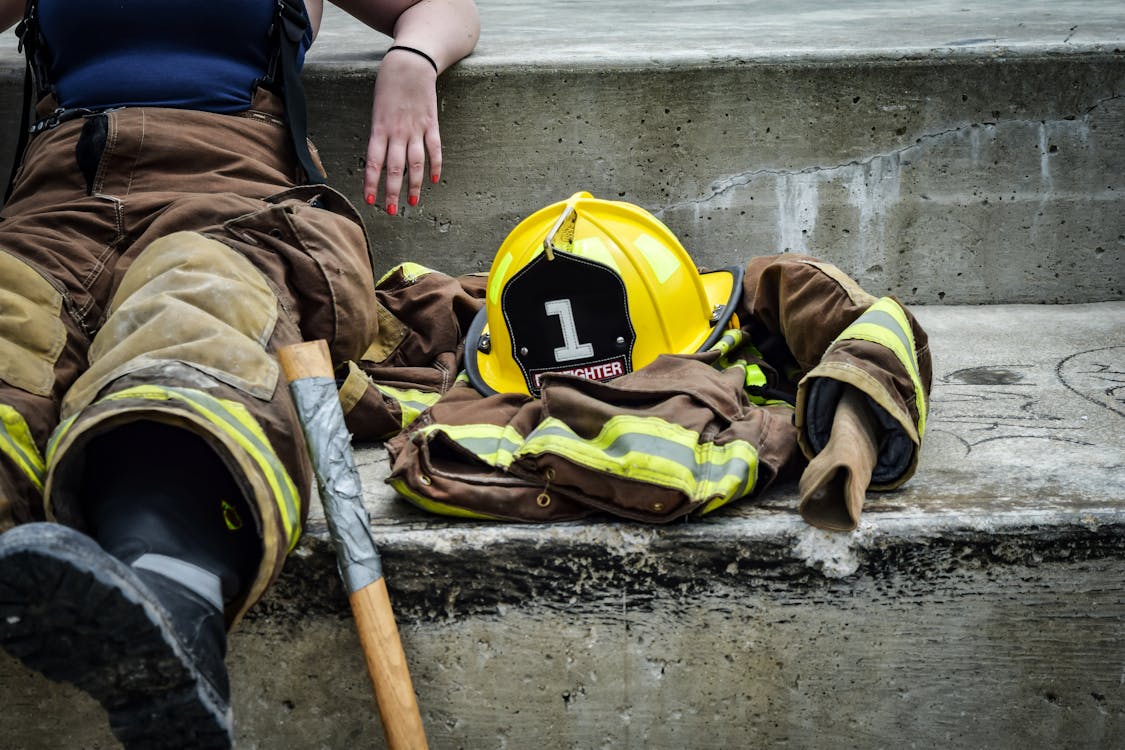Has your teenager shown interest in becoming a fire service professional? As a proud parent, you’ve probably encouraged them to look into the junior program. This initiative enrolls children between 14 and 17 years of age in a volunteer group.
In this formal training program, they support senior firefighters during emergencies. For instance, teen volunteers tirelessly worked with adults to deal with the Texas wildfires in 2024. This story alone can inspire your child to try and take up the mantle.
Firefighting is indeed a noble profession. However, these adolescents must know the potential health problems they might face in this line of work. An example would be the onset of psychological issues from continuous stressful situations.
In this blog post, we’ll discuss three health issues a teenager might encounter when working as a firefighter.
#1. Mental Health Problems
Firefighters are at a higher risk of death-provoking helplessness and grief due to the loss of their colleagues. Your teenager might also face challenges that violate their moral values. They will surely be exposed to distressing scenes and fatalities daily.
Teenagers have a developing brain. They’re still navigating the challenges of being a young adult with responsibilities. Hence, they have a heightened risk of developing mental health problems after witnessing traumatic and emotionally intense situations.
Reports suggest that all of these can lead to the following problems:
- Depression and suicidal behavior
- Occupational stress and anxiety
- Sleep disorders
- Post-traumatic stress disorder (PTSD)
As a parent, you must recognize the state of your teenager’s mental health. Take them to a mental health professional if they exhibit any stress or anxiety due to their job. If left untreated, these can hamper their professional and personal lives.
Most fire stations offer mental health resources for teenage firefighters. It’s a crucial step towards safeguarding their quality of life.
#2. Cancer Risk
The CDC has reported that cancer is common among older firefighters. Years of occupational exposure to harmful substances have led them to their deathbeds. These chemicals include the following:
- Per- and polyfluorinated substances (PFAS)
- Asbestos
- Benzene
- Volatile organic compounds (VOCs)
Your teenager might get exposed during their first few years on the job. But how can they avoid this? Teen firefighters can follow these tips to help minimize exposure to carcinogens:
- Reading the manufacturer’s instructions when using new equipment
- Keeping all their safety equipment clean
- Following protocols and wearing protective gear
- Going for regular health screenings
Aqueous Film-Forming Foam (AFFF) Exposure: An Example
AFFF is a type of fire extinguisher used to mitigate liquid fires. For many years, firefighters used this during training and rescue operations.
However, studies showed that AFFF contained various amounts of PFAS. This substance is a ‘forever chemical’ that doesn’t break down in the body, leading to cancer. Once the firefighters learned about this, they became furious and took legal action.
A whopping 7,738 victims filed a firefighting foam lawsuit against the AFFF manufacturers. The plaintiffs wanted compensation from the companies for spreading misinformation and their hefty medical bills.
According to TorHoerman Law, this litigation will offer payouts for medical expenses, lost wages, permanent disability, etc. Thousands of victims are still waiting to receive settlement amounts up to USD 300,000.
#3. Issues With Their Heart Health
Studies have shown that emergency duty has led sixty-eight percent of firefighters to develop cardiovascular risk. It occurs due to obesity, hypertension, and smoking. Deteriorating heart health is also a critical concern among teenage firefighters.
In today’s world, sudden heart attacks have unfortunately become a common occurrence among youngsters. Moreover, teenage firefighters might develop health diseases due to the intense physical demands of the job. Your child might also be exposed to potential cardiovascular stressors. These include the following:
- Carrying heavy equipment
- Navigating hazardous environments
- Inhaling toxic smoke
These can strain your teenage firefighter’s heart and exacerbate the risks. Long-term implications include coronary artery disease and increased cardiac events.
But how can parents stop that from happening? To safeguard your teen’s heart health, you must follow these tips:
- Promote physical fitness
- Implement regular cardiovascular assessments
- Provide education on heart-healthy habits
In summary, teenage firefighters face a range of health concerns. These include mental stress and physical strain.
Regardless of age, every firefighter will encounter health issues in the line of duty. Parents must understand the implications of being a firefighter.
That’s the only way you can recognize the concerns and help your teenager address them before it’s too late. Ensure they get adequate support to prevent long-term health concerns. Are you ready to let your teenager become a fire service professional?








